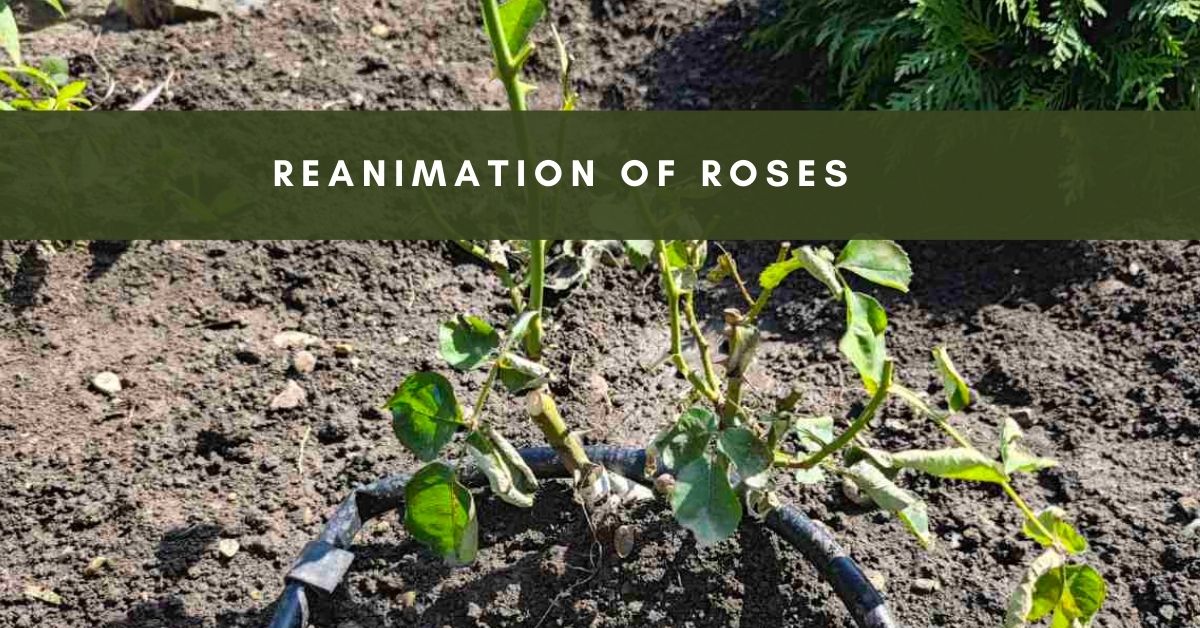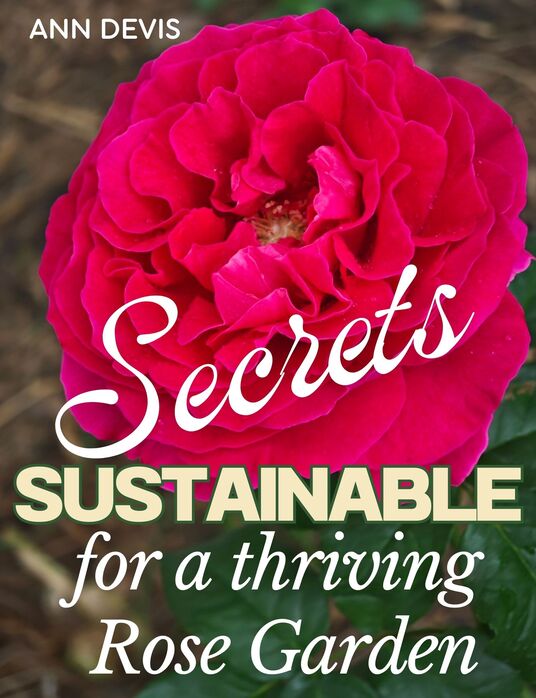Transplanting roses can be daunting, especially when the process goes less smoothly than planned. Whether you’ve moved your rose bush to a new location to enhance your garden’s design or to provide a better growing environment, it’s not uncommon for the plant to experience shock. But don’t worry—your rose can recover with the proper care and attention. This guide explores practical steps to reanimate your roses after an unsuccessful transplant, ensuring they return to their full, blooming glory.
What is Transplant Shock?
Transplant shock occurs when a rose bush’s new location is too different from its previous environment. This stress can appear as poorly uncurled dried leaves, stunted growth, and generally weak-looking plants. It comes as a shock to them because their root system on new plants is not yet established and can’t source enough water/nutrients just for over-pruned foliage.
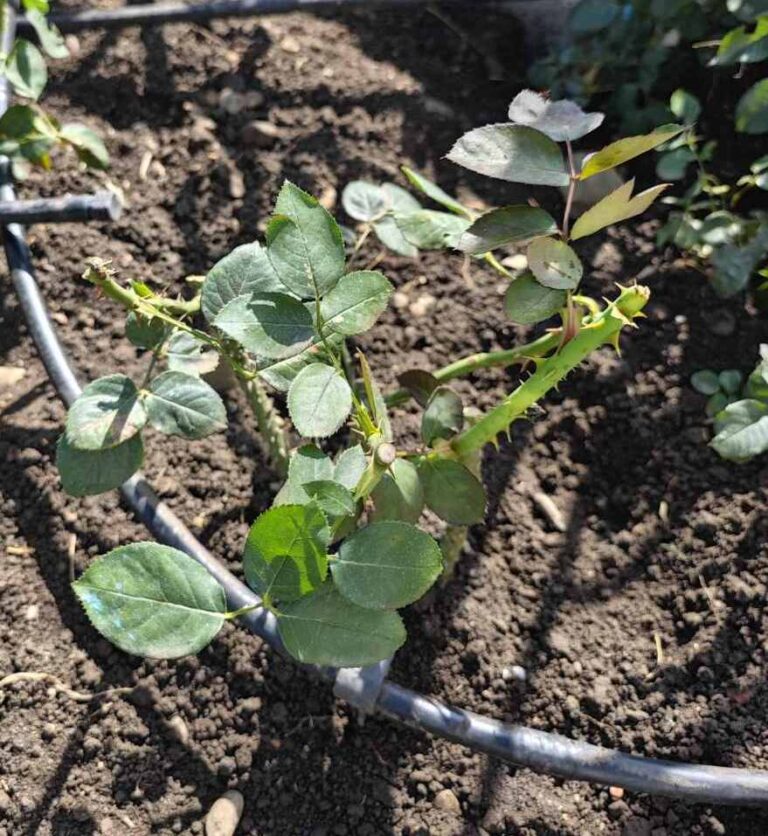
rose Johann Wolfgang von Goethe
How to Revive Rose After Transplant Shock
Step 1: Trim the Rose Bush
The first thing you can do to help your rose come back from the shock of transplanting is to remove some of that stress by cutting it back. Trim the leaves down by one-third – this will help remove some of the stress for your roots. This way, the plant can put more energy toward regrowing and reestablishing roots instead of supporting a lot of foliage.
Step 2: Maintain Moisture and Temperature Balance
Not watering enough is a frequent cause of poor performance in roses, as it causes stress for the plant; however, overly wet soil can also lead to problems. The purpose is to provide a stable environment to help roots recover. Keep the soil moist but not waterlogged, and water every 2-3 days. Cover the cactus with a light covering, such as an overturned bucket, for part of each day in a direct sun area. It helps keep moisture at bay and keeps the rose from sunburn while adjusting.
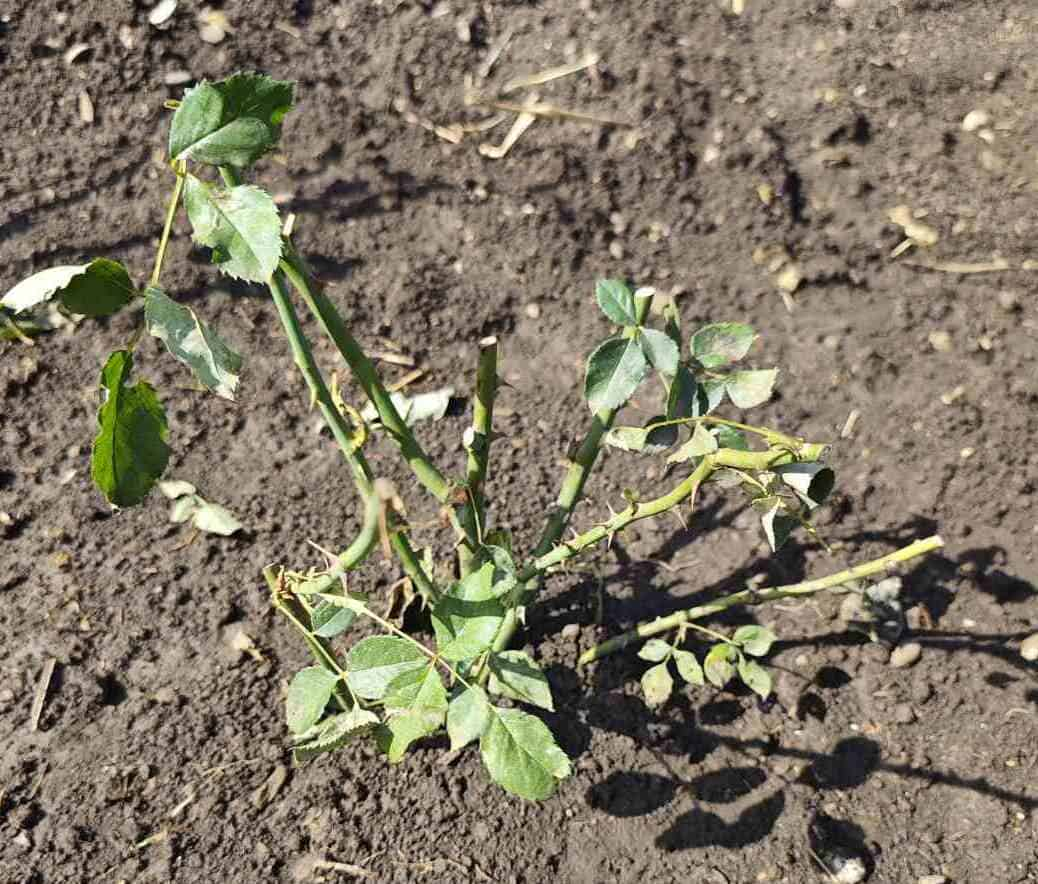
Step 3: Remove Dead Foliage
Also, dead leaves or dried sides are ugly and can give rise to annoying fungi that attract pests. Slowly remove dying foliage from the plant to increase air circulation and decrease disease incidence. This simple step can significantly improve your rose bushes’ general health as they recover.
Step 4: Use Growth Stimulants
By applying a growth stimulant to the leaves and soil, your rose can bounce back into total health quickly. Such stimulants promote rooting and the health of a rose plant, thereby reducing recovery time. Remember not to overdo it as another stressor for the plant, and apply it according to directions from your manufacturer.
Common Watering Problems
Insufficient Watering
Transplanted roses often endure water stress during dry spells or watering schedule inconsistencies, which is normal. Roses that have just been planted will need more watering until they are established. Ensure you water your roses every 2-3 days until they are based, then reduce to once a week in cool weather and twice a week during hot and dry periods, depending on whether the soil is too dry.
Overwatering and Root Rot
As damaging as underwatering can be, overwatering might ironically have the same effect. Its roots can suffocate and may begin to rot (a quite deadly condition) if the soil gets too wet. If root rot is a possible culprit, carefully remove the rose from its soil and check out what’s up with those roots. Healthy vs. Rotten roots: White, firm, mushy, dark—Trim off the infected roots and hit them with a fungicide before repotting them in fresh, well-draining soil.
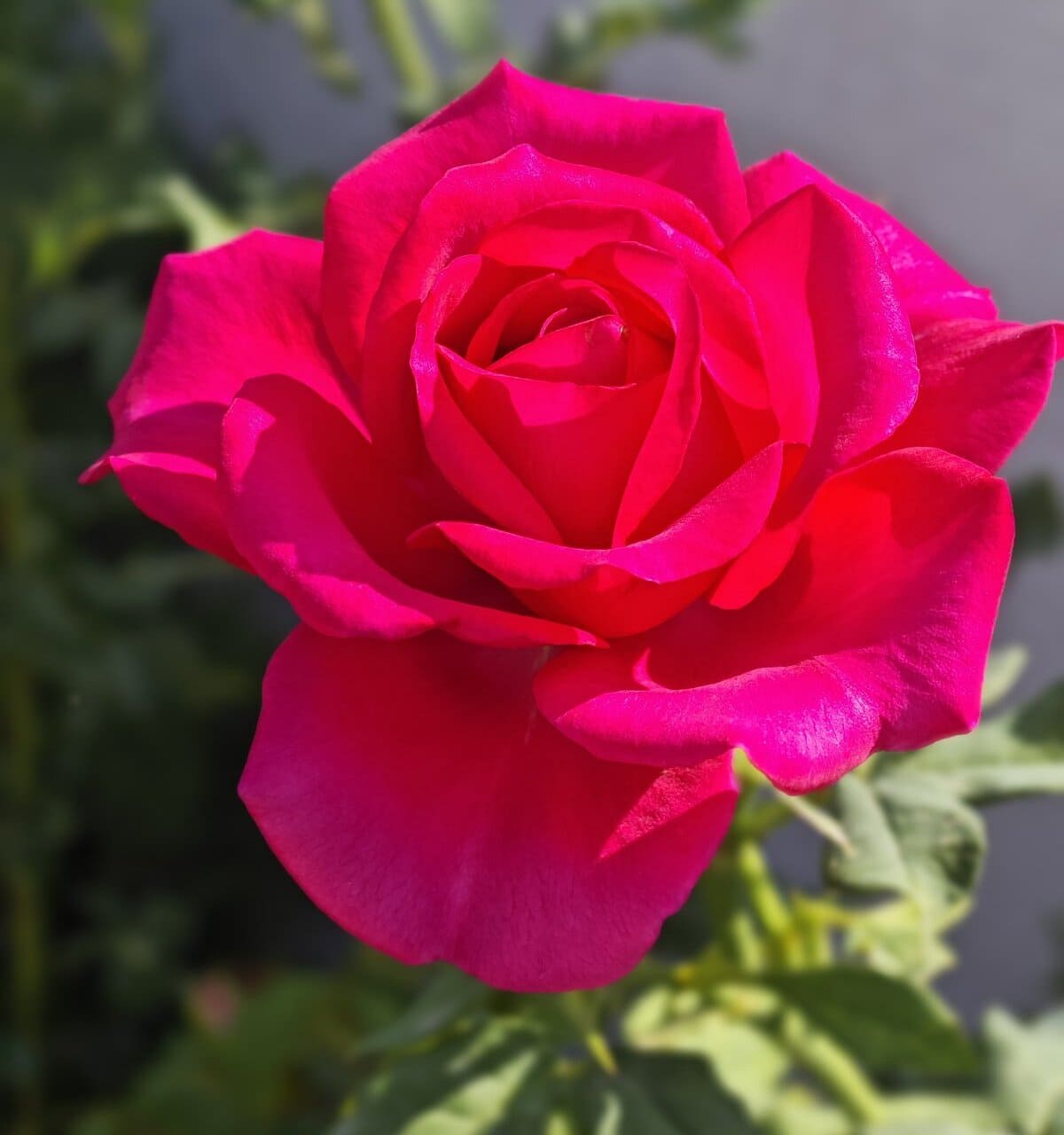
Rose Health – Other Considerations
Temperature Fluctuations
Roses are very susceptible to temperature vagaries. Transplant shock can get worse with drastic weather experiences like sudden cold snaps or heat waves. Rose bushes take firm roots in fluctuating temperatures, so leave enough headroom for planting to protect rose flowers from severe weather or plant when the rose plants are comfortable, such as early Spring or late Fall.
Fertilizer Imbalances
Over-fertilizing and under-fertilizing roses can cause nutrient deficiency. Too many nutrients can burn the roots, while too few can cause nutrient deficiency. Aim to find a balance with your feed regime that suits the needs of your individual rose. Compost and organic mulches such as straw, peanut shells, or corn stalk chaff are also beneficial to the nutrient base so as not to put too much pressure on the plant.
Poor Soil Drainage
Roses need good drainage. It is sine qua non for the health of a rose plant. This is just as bad because it makes the soil hold too much water, and root rot begins (among other problems)! If drainage is an issue, consider adding compost to your soil or amending it with leaf mold and manure.
Pest and Disease Control
A weakened rose is susceptible to pest attacks (aphids) and diseases (black spots). Monitor your plants and deal with any outbreaks promptly. Treat plants with an organic or chemical treatment (as is appropriate), and release beneficial insects like ladybugs to keep pest populations in check.
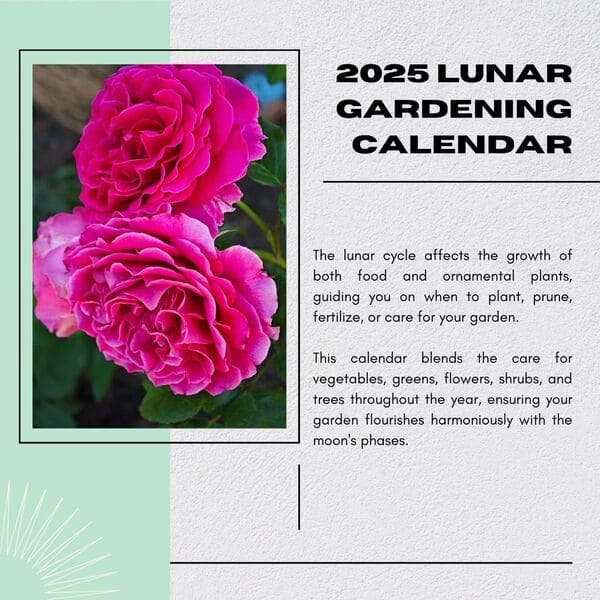
Get Your Free Lunar Gardener's Calendar 2025!
Join the Lunar Gardening Revolution! Subscribe now to receive our exclusive Free Lunar Gardener’s Calendar for 2025. Harness the power of the moon to optimize your planting, nurturing, and harvesting.
Nurturing Your Rose Back to Health
Transplanting roses sometimes goes according to plan, but your plant can recover with careful attention and the proper techniques. You can reanimate your rose and restore its beauty by trimming the bush, maintaining adequate moisture levels, removing dead foliage, and addressing any underlying issues. Remember, the key to successful reanimation is patience and consistent care. With time, your rose will reward you with lush blooms and vibrant growth, making all your efforts worthwhile.
FAQ: Saving Your Rose Bush After a Failed Transplant
1. How do I know if my transplanted rose is in shock?
Common signs include wilting leaves, yellowing foliage, drooping stems, and no new growth. Roses may also drop buds or leaves as a stress response.
2. Can a rose bush recover from transplant shock?
Yes, with proper care, many rose bushes can fully recover. Recovery depends on factors like root damage, weather conditions, and how quickly stress is addressed.
3. What should I do immediately after a transplant fails?
Rehydrate the rose with deep, consistent watering, provide partial shade if sun-stressed, and apply a gentle root stimulator or diluted seaweed solution to encourage root regrowth.
4. How long does a rose take to recover from transplant shock?
Recovery can take anywhere from 2 weeks to 2 months, depending on the severity of the shock and how well the plant is cared for.
5. Should I prune a rose bush that looks dead after transplanting?
Yes—prune back any blackened, dried, or clearly dead canes. This helps redirect energy to healthy parts and stimulates new growth. Avoid heavy pruning unless necessary.
6. Is leaves typically falling off after transplanting a rose?
Yes, leaf drop is a common stress reaction. Instead of replacing foliage immediately, focus on supporting root health.
7. Can I fertilize my rose after transplant shock?
Avoid chemical fertilizers for at least 4–6 weeks. Instead, use organic compost tea or seaweed extract to gently nourish and support recovery without overwhelming the roots.
8. Why did my rose bush fail to transplant successfully?
Common reasons include root disturbance, transplanting during extreme heat or cold, insufficient watering, or poor soil conditions at the new site.
9. What’s the best time of year to transplant a rose bush?
The ideal times are early spring (before active growth starts) or fall (after blooming ends) when temperatures are moderate and the plant is not under active stress.
10. Can I dig up and replant a rose that didn’t take root?
Yes, you can re-transplant but do so with extra care. Trim damaged roots, soak in a root stimulator, improve drainage and soil quality, and replant during a fabulous, overcast day.

